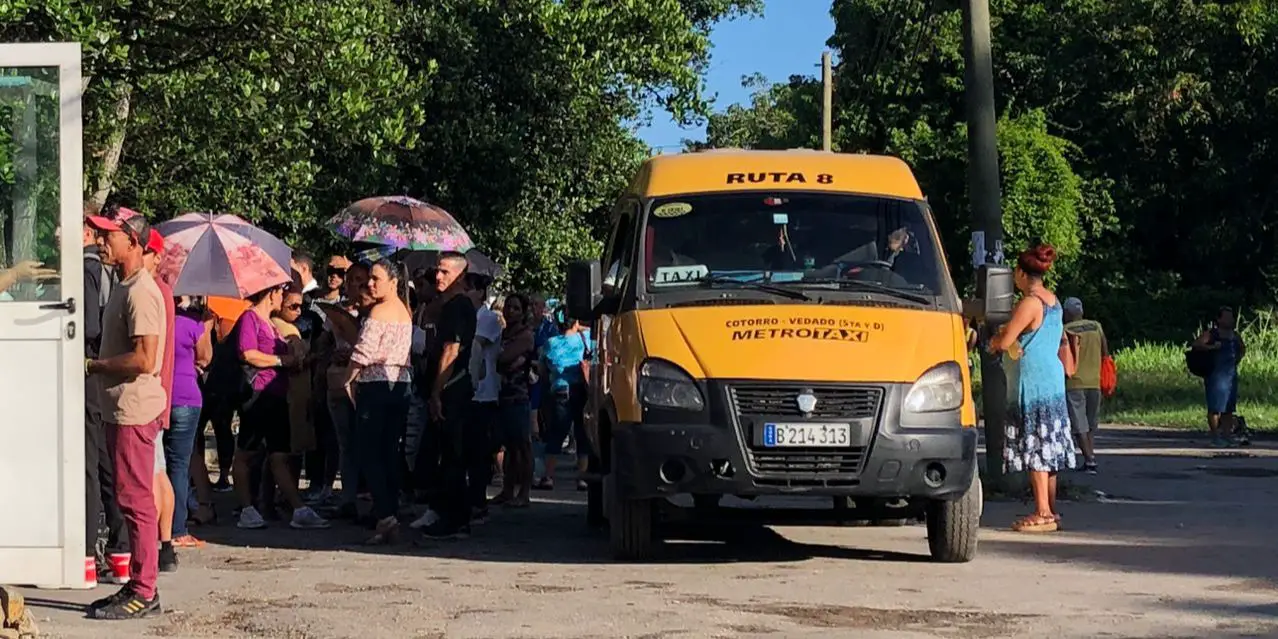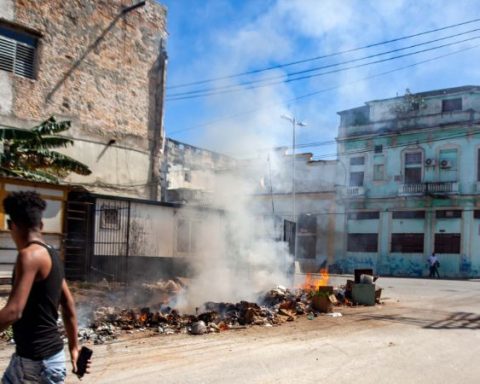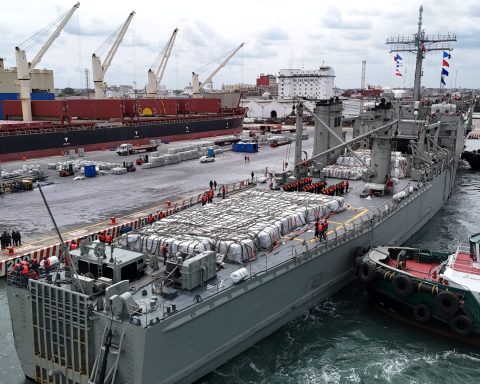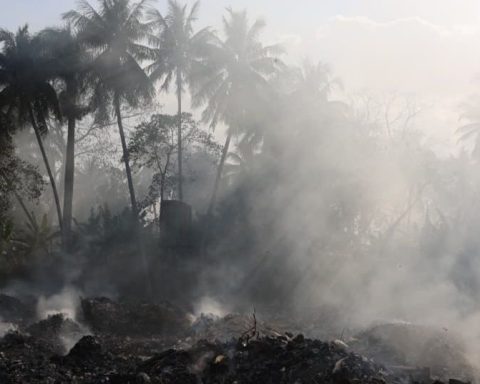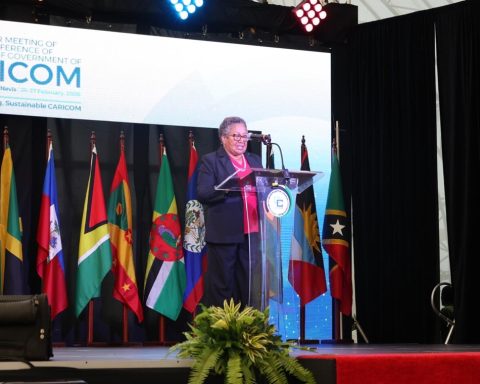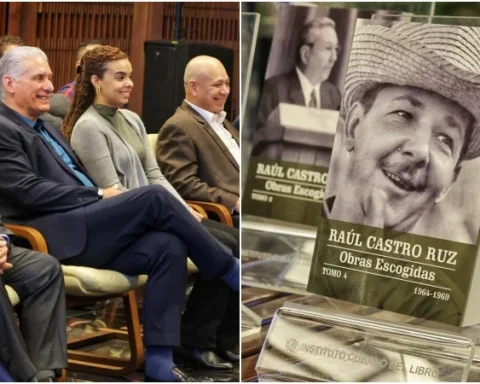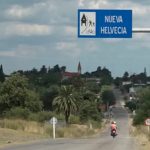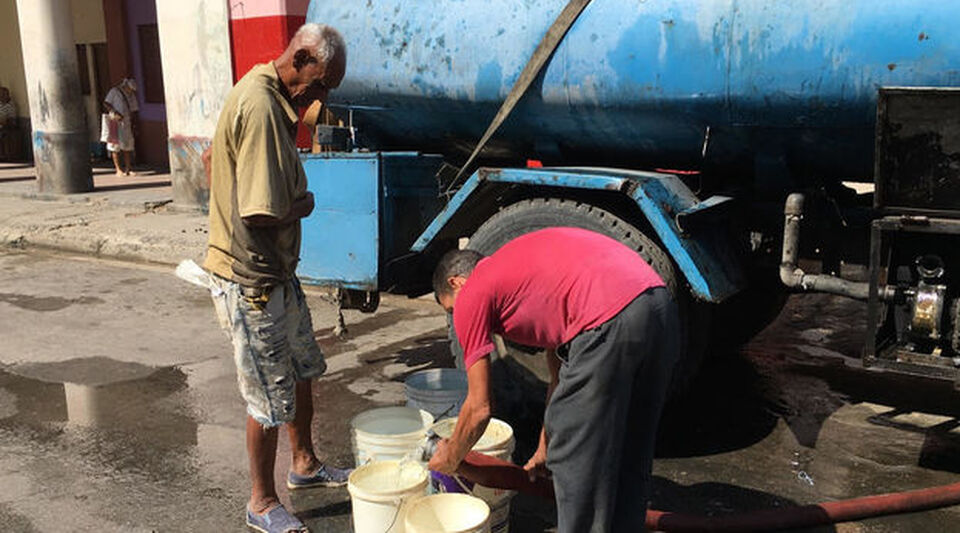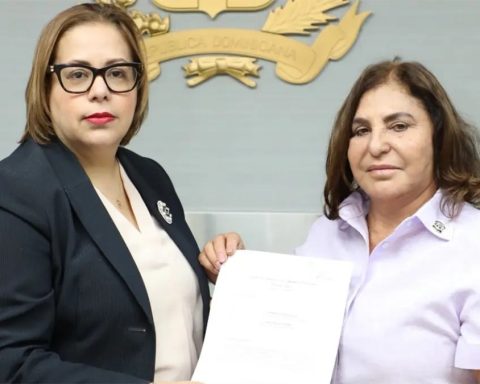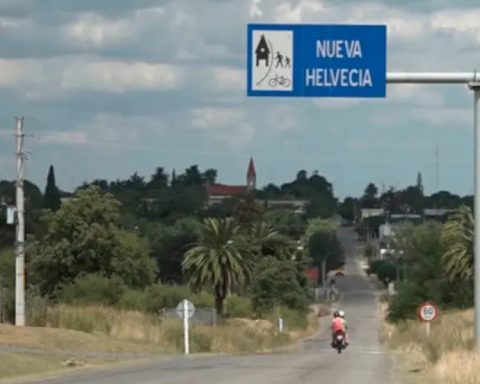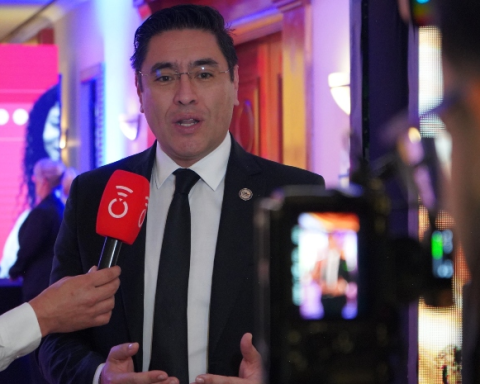Havana Cuba. – You had to be this Tuesday morning in El Cotorro, in the area close to the old whereabouts, to understand the mess caused by the Cuban government with the new price cap imposed on private taxi drivers.
An anthill of people populated both sides of the Central Highway, lying in wait for any passing car. At the entrance of the taxis that leave for Havana there was only one almendrón, which was already rented, and whose driver had to move several meters away from his car to avoid the siege of desperate passers-by, who offered him up to 250 pesos as long as he to take them to Havana.
You had to see the crazy people, crossing from one side of the highway to the other among the vehicles that circulated, almost all state vehicles, to ask this or that boat driver, who stopped for a second, if he was going to Havana. They all answered no and drove off with an empty car before the impotent and angry gaze of the people, who were already beginning to get angry under a sun that, being barely 9:30 in the morning, brought sparks from the asphalt.
“Brother, please, we are going to pay you your normal rate, the usual one, but here we are a few of us who are already late for the DJ [trabajo]”, a burly man begged the owner of a beige-colored almendrón, who got out impassively and told those present that they could not go to Havana.
“You didn’t want price control? Well, there you have it, ”she said, referring to the people who usually complain about the high taxi fares. Among the small group that followed him, a lady made an offensive comment. The driver stopped dead and explained that among the same passengers there are plainclothes inspectors, sometimes up to two together, and when you charge more than 100 pesos they apply a 12,000 fine.
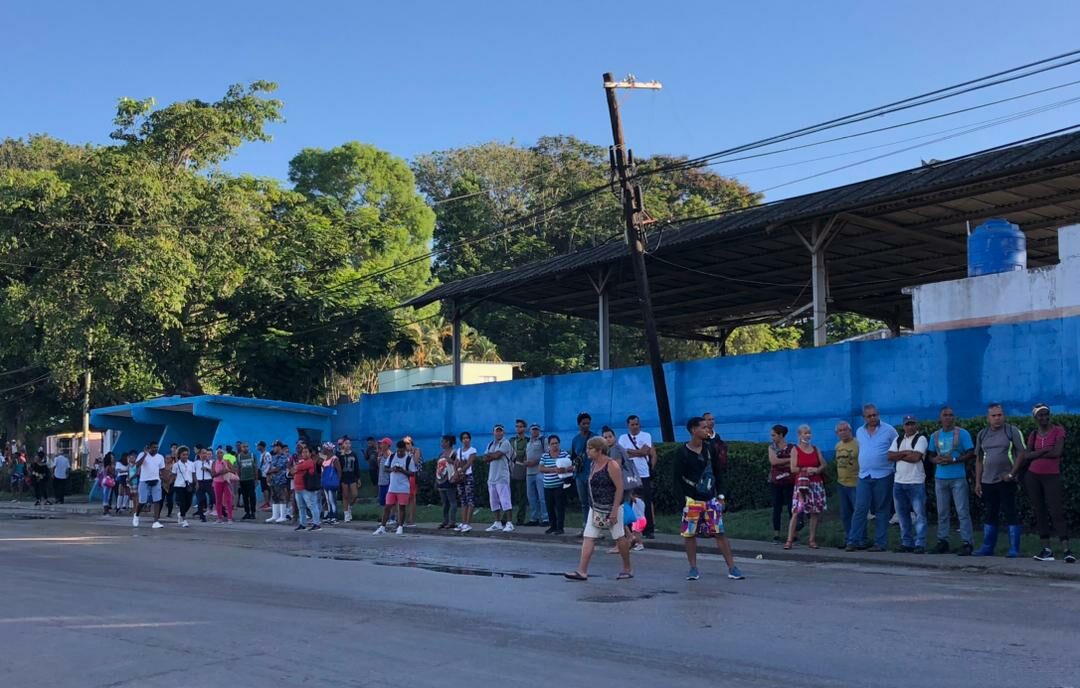
“I can’t risk it like this, and for less than 150 pesos I’m not going to throw away a ticket to Havana because the State sells me very expensive food, the same as everyone else, and a tire for the car costs me more than 400 MLC”, he concluded emphatically.
In front of the gate, on the land known as La Contuco, where gazelles 8 and 12 travel, two huge lines of people meandered in anticipation, opening umbrellas, grouping under the trees to protect themselves from the sun. Many were already late for their respective centers of work or study, procedures and medical consultations. Criticism of the State was heard for decreeing a price cap at this time, when transport is worse than ever.
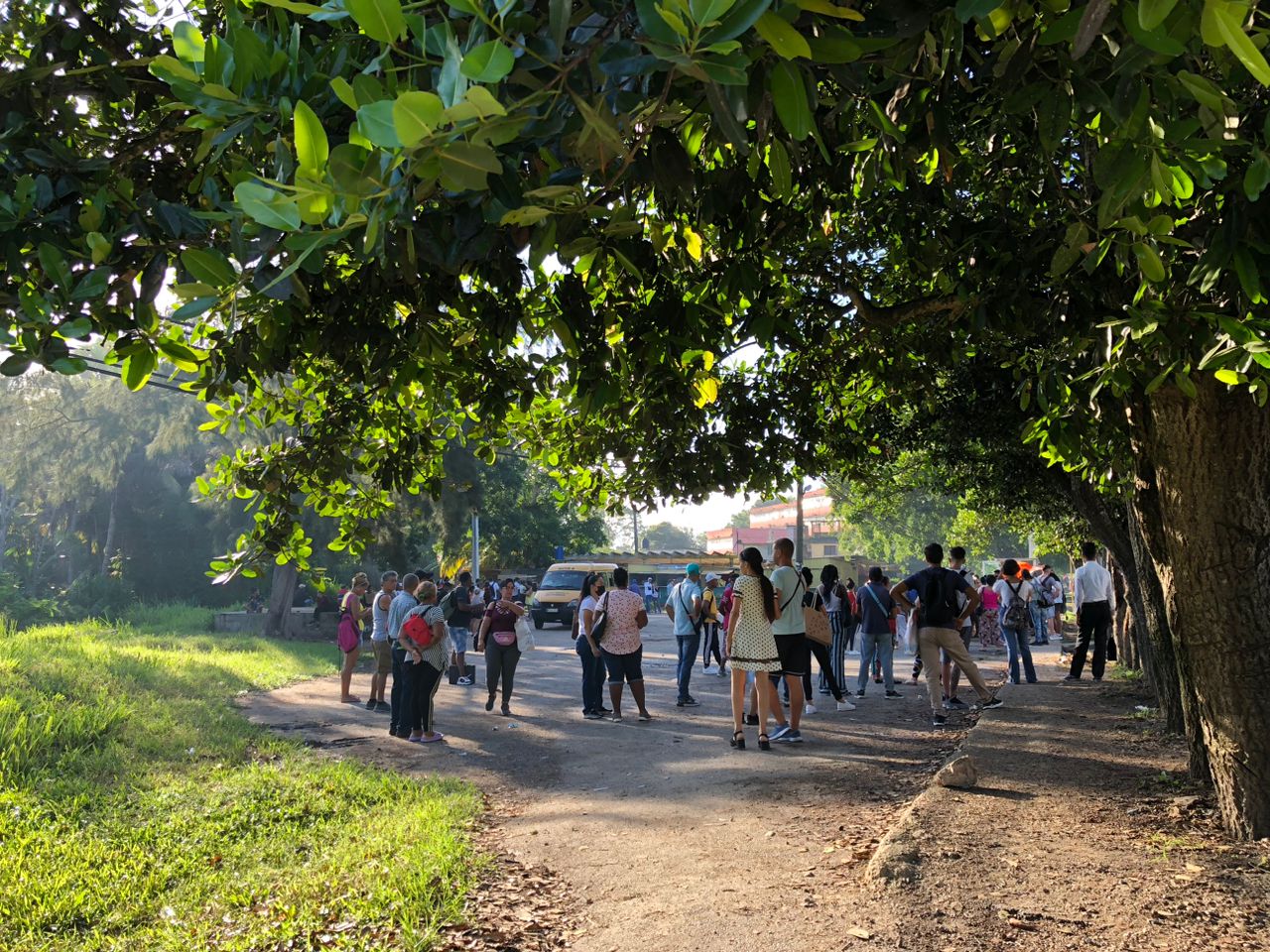
In just over an hour, only three gazelles appeared from route 12, and two from route 8. The tails grew, they touched. In the shade, three inspectors did not seem enthusiastic about the idea of working and, while they chatted, at least two seats in the gazelle were being sold for one hundred pesos each.
The people began to riot and protest, but the one who paid, got on and left. An outraged nurse decided to bite the bullet and go on foot to the “Efraín Mayor” polyclinic, a walk of at least two kilometers.
In the midst of the announced strike, many boatmen from El Cotorro have decided to take a direct ticket, or from the old whereabouts to the San Pedro bridge, a 15-minute race for which they must charge 60 pesos, but several passengers offer 100 to get out from that hotbed
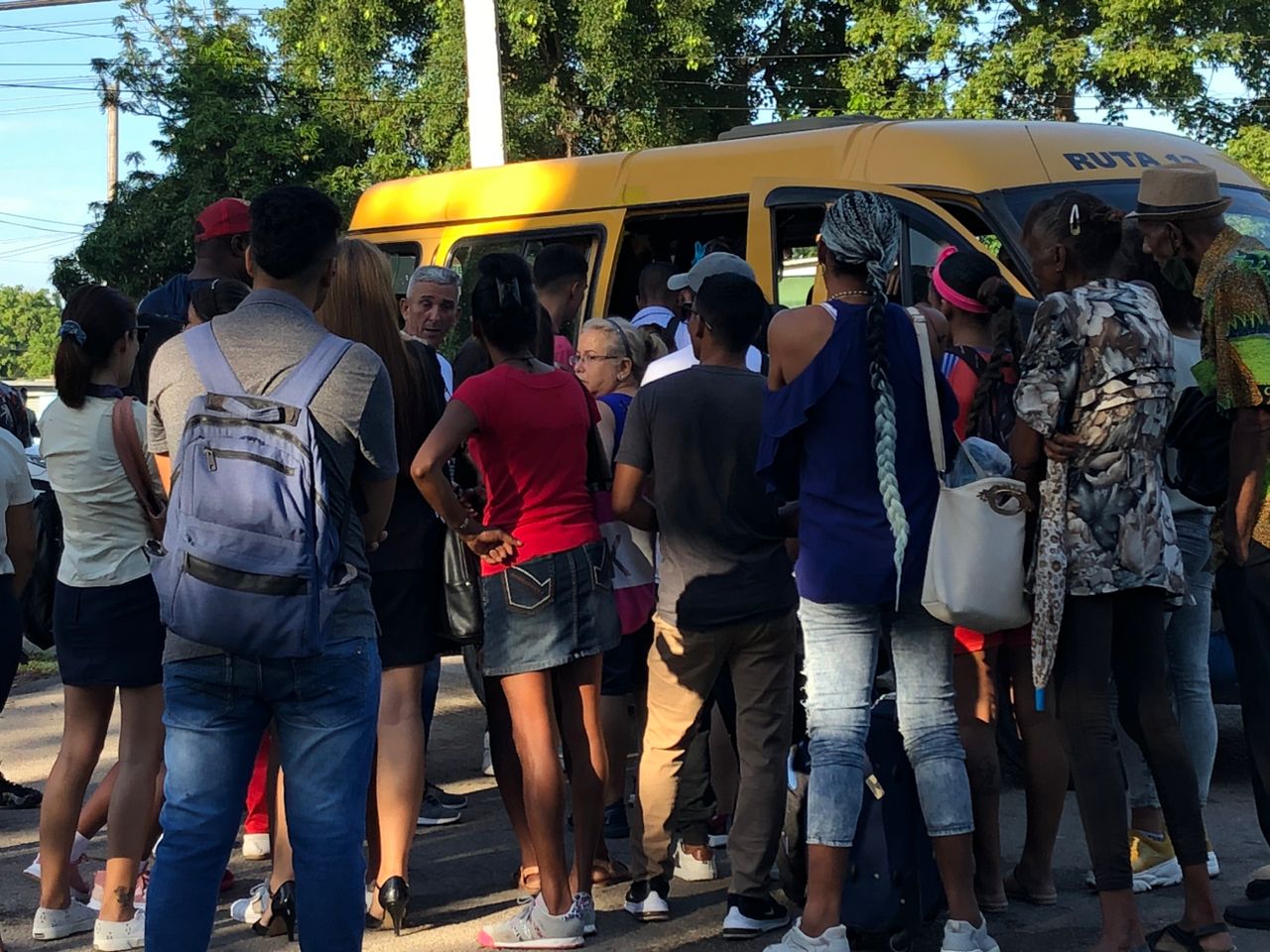
The Cuban government continues its useless struggle against the law of supply and demand. In front of this servant, a woman paid a taxi driver 1,500 pesos for the two front seats of her almendrón, also offering him the possibility of covering the remaining three seats during the journey. Immediately, two women suggested that he pay 300 pesos each to the Virgen del Camino, so in a single run the taxi driver assured, initially, 2,100 pesos, and it is very likely that in the Virgen del Camino he loaded new passengers for not less than 100 pesos.
There will always be alternatives for those who have a car in a country whose transportation system is in permanent crisis. The problem of the low purchasing power of wages in Cuba is not going to be solved with price caps for two basic reasons: because the Government will continue to fail in optimizing the state vehicle fleet, and because there are many Cubans willing to pay 150 or 200 pesos to reach your destination as quickly as possible.
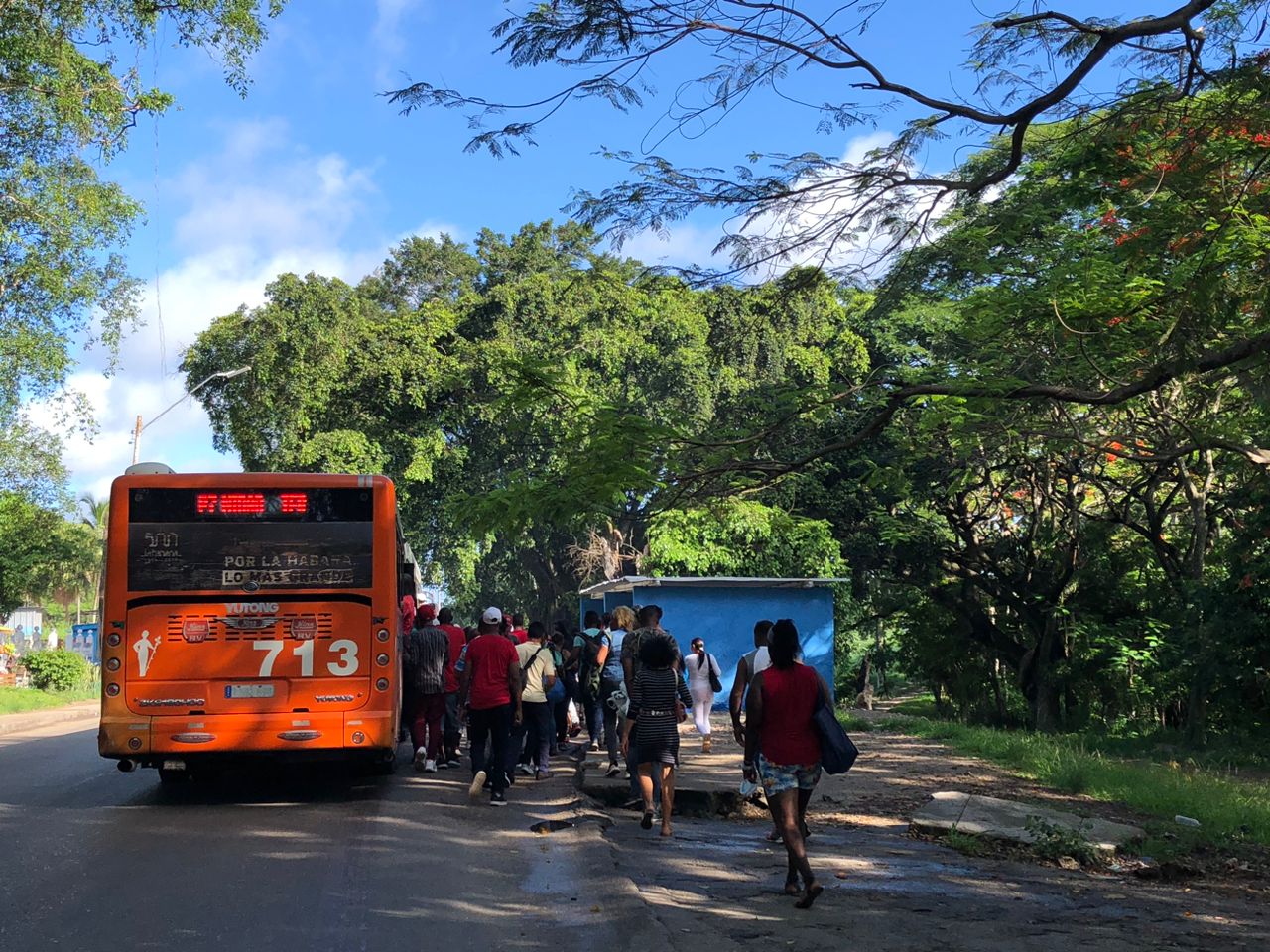
For an hour, only one bus on the P7 route, which covers the Alberro-Havana route, was seen circulating. The car was crowded with passengers, taking the stops due to the impossibility of loading more personnel, with people clustered at the doors and others running after them, a regrettable spectacle that we have been witnessing for too long. The empty almendrones passed by his side, ignoring the outstretched arms and the shouts from the stands.
The only thing that the Government has achieved with the price cap is to throw everyone out on the street, those who can pay and those who cannot, with the logical negative impact that so much delay has on the economy and on the public spirit. people, who can no longer handle so many prohibitions and controls that only serve to worsen an increasingly unbearable existence.
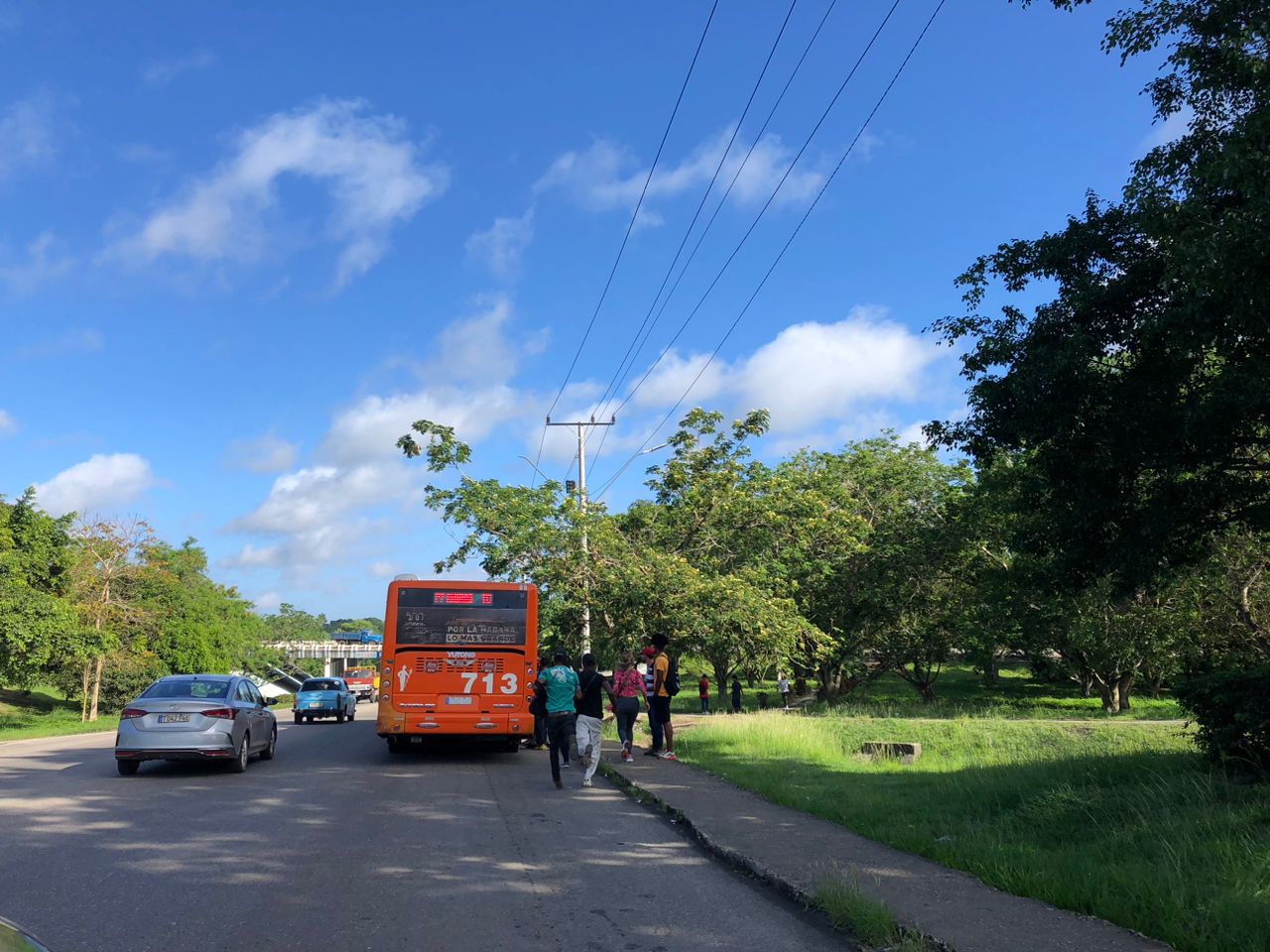
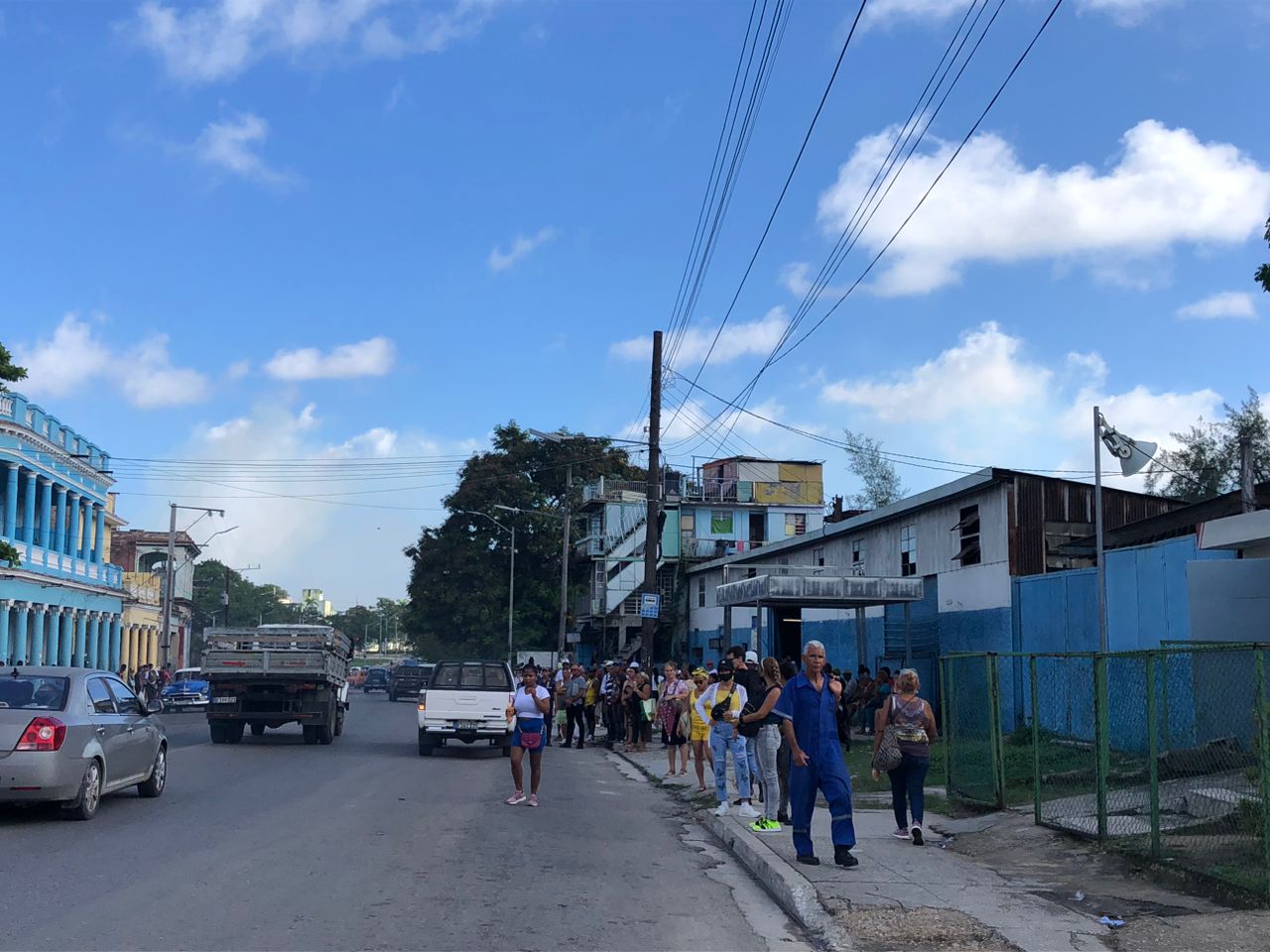
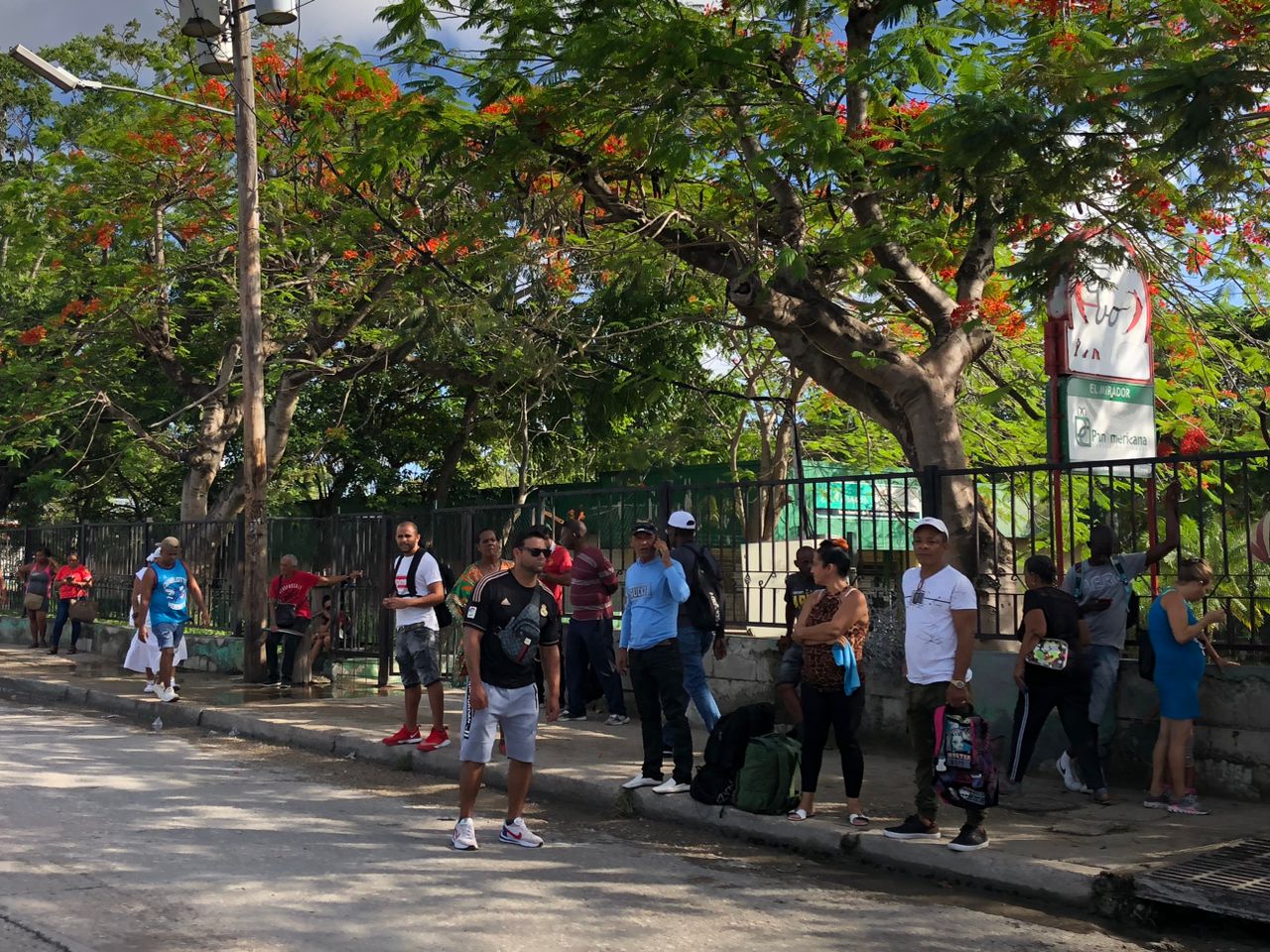
OPINION ARTICLE
The opinions expressed in this article are the sole responsibility of the person who issues them and do not necessarily represent the opinion of CubaNet.
